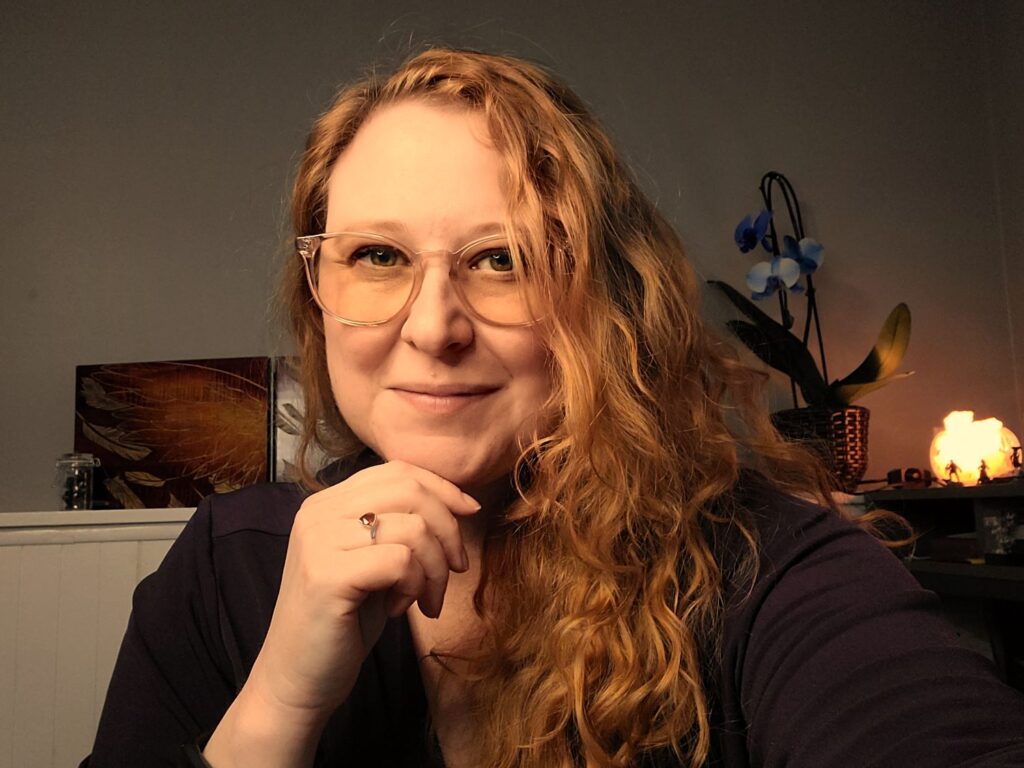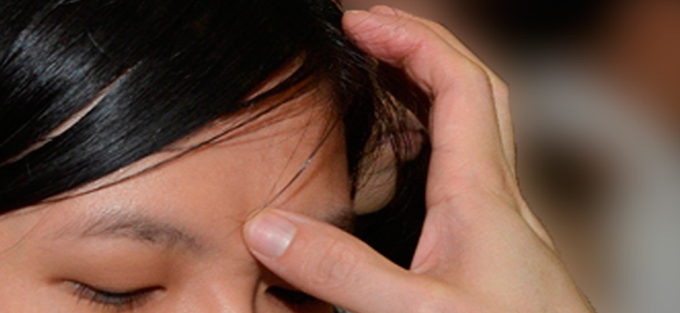by Amanda Llewellyn
A young woman, probably in her early 20s, looked deep into my eyes. “I can have communion? I wasn’t confirmed . . . my pastor wouldn’t confirm me.”
“Yes. You can have communion here.”
Moments like this make the hard work of serving as an ally incredibly powerful and humbling and so very worth it.
Back when I started my ministry, I didn’t know I would be an ally to people who are LGBTQIA+ (lesbian, gay, bisexual, trans, queer, intersex, a-spec, and many more identities). I didn’t know the blessing that this work would be in my life and in my ministry. I had no idea that I would discover that I am called and convicted by Scripture to do it.
In 2014, I began staffing a “Sacred Space” booth at the Portland Pride Festival, a celebration of and for the LGBTQIA+ community.
The Sacred Space booth is a place for prayer, peace, stillness and conversation if desired. We have communion present and oil for anointing. That first year, on Sunday morning, after the big parade and halfway through the festival hours, four friends stepped into our corner booth.
More than good intentions
 Being a good ally takes more than good intentions. There are so many times I’ve gotten it wrong. I’ve spoken when I should have been quiet. I’ve used incorrect pronouns for someone who asked me to use new pronouns. I’ve explained things – just to prove I know something from the outside – to people who already know from the inside. Being a good ally is hard work.
Being a good ally takes more than good intentions. There are so many times I’ve gotten it wrong. I’ve spoken when I should have been quiet. I’ve used incorrect pronouns for someone who asked me to use new pronouns. I’ve explained things – just to prove I know something from the outside – to people who already know from the inside. Being a good ally is hard work.
But it’s something my faith calls me to do. It’s something our faith calls us all to do.
The first time I read a gospel in seminary, my professor opened my eyes to the social justice call of our Savior. Not only was I supposed to love my neighbor, I was supposed to do something about it! It was mind-blowing. And terrifying. And thrilling. I was ready to change the world — I wanted to proclaim God’s justice to everyone I met!
And like a puppy with paws too big for their body, I took my big clumsy feet out into the world and started bumbling around. It’s hard to get started in justice work without collecting a few bumps and bruises. Inevitably, we will offend someone along the way. We’re too passionate, too intense, too . . . . whatever someone thinks. Sometimes that just fuels our fire. Sometimes we lose friendships. Sometimes we learn incredibly valuable lessons about how to do this work with a little more gentleness, a little more savviness, a little more finesse.
Here are a few things I’ve learned along this path.
1. Show up and shut up. Sometimes those of us with privilege have a hard time being quiet. We show up for a training session on “how to be an ally” and spend the hour talking about the work we have done. Learn how to be present without proving your presence.
2. Instead of running around telling everyone what they should do, let’s be quiet. Listen. Let’s get to know the people we are journeying with and listen to their stories. If they ask us to share their story because it is unsafe for them to do so, let’s work with them to get the information correct. Amplify their voice. As soon as it’s safe, pass the microphone back to them.
3. There are times when the privilege we hold will mean that we will be heard when others may not. For example, my clerical collar can lend me credibility for some audiences to listen to my words.
When visible privilege lends me power to speak on behalf of the community I serve, I have the responsibility to do so. Whether that means signing a petition with my professional title or standing before a camera with my collar on, I must act responsibly within my power and privilege. We all do this best when we are guided by members of the community at risk.
4. As allies, we are called to step forward in faith and use the privilege we hold on behalf of the community we serve. We just need to make sure it’s the community’s agenda we’re promoting and not our own.
Back in that booth at the Pride Festival, that young woman and her friends held hands with me and we prayed together. I told the story of the night that Jesus was betrayed. We passed the bread around the circle. They received communion, tears in their eyes. They hugged one another. They received blessings. They thanked us and they walked away, knowing God’s love for them, at least for a moment. And justice on earth came one step closer to reality.
Discussion questions:
- When has someone served as an ally to you? What did they do that most helped you to feel supported?
- When have you stayed silent because you were afraid to say the wrong thing? What kept you from speaking?
- Who in your life has invited you to be an ally? How have they asked for your partnership?
Closing prayer:
Loving God, you promise that you will bring justice to this world. Give us courage to be a part of your justice coming into the world. Teach us when to listen, and when to speak; when to step forward, and when to step back. Trusting in the one who will not grow faint until your justice has come, our Savior Jesus, we pray. And may the people of God say, Amen.
 The Rev. Dr. Amanda Llewellyn serves in Portland, Oregon. With a passion for liturgy and a ministry of presence, Amanda continues seeking paths of advocacy and justice.
The Rev. Dr. Amanda Llewellyn serves in Portland, Oregon. With a passion for liturgy and a ministry of presence, Amanda continues seeking paths of advocacy and justice.
Photos by John Ragai.
A version of this article first appeared in Boldcafe.org in December 2015.


Thank you for these reminders. For all the conflicts and confusion in our society today, this is good advice. In my role as a supervisor, I can also be an ally in these ways for my staff.
Thank you for your words. I too hear God’s call to serve my lgbta brithers and sisters. I so appreciate that you in clerical collar are there. So many are not.
Thank you for these words and validation for all who are allies. It can be hard work, but it is the most rewarding as we struggle (as you said) not always getting it right, but always trying, for Jesus’ sake and for the sake of the world. I don’t know how we can hear the good news and not see how God includes us all in a radical welcome through the Sacraments – and then share those means of grace with a hungry and thirsting world.